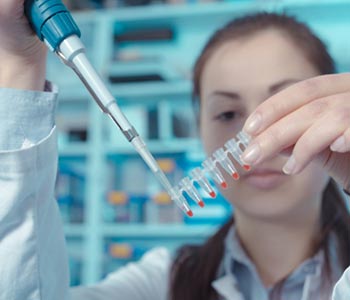Effective treatment options for male infertility available in Dallas, TX
Historically, people have regarded issues with fertility as “female problems,” but in reality, that is not the case at all! Approximately half of the infertility cases involve the man in some way, and about one in every three infertility cases is solely due to an issue with the male. At NTMIC Sperm Lab, patients in the Dallas, TX area who are facing male infertility can find effective treatment options and the non-judgmental expertise they seek. Dr. Jeffrey Buch works with each patient individually to understand the reason behind their fertility issues and customizes each treatment plan to their specific needs and preferences.

Evaluation to determine the cause of infertility
The first step in any infertility treatment plan is to determine the underlying cause (or causes) of infertility. Certain signs can point to a hormonal deficiency that could be contributing to infertility problems, such as:
- Increased body fat
- Decreased facial hair
- Decreased body hair
- Decreased muscle mass
Giving Dr. Buch a detailed medical history is also important, including whether you have ever experienced any traumatic injuries to the penis or testicles, if you had any childhood diseases that can affect fertility such as the mumps, or if you have recently had high fevers or infections.
Physical problems such as hernias, infections, or varicoceles (enlarged veins in the scrotum) can also impact your fertility, and the sperm themselves may have issues affecting their motility and health.
In some cases, medications such as anti-seizure medicines or anabolic steroids can cause fertility problems. Chemotherapy treatments for cancer or other diseases can also harm your reproductive organs.
Dr. Buch will explain the rationale behind any tests that are needed to diagnose the root cause of infertility issues and will then use that information to determine the best treatment options for you. In some cases, no underlying cause can be identified. In these cases, Dr. Buch will recommend evidence-based therapies that have been shown to improve male fertility.
Hormone therapies
If your fertility issues are due to abnormally high or low levels of hormones that affect your reproductive system, such as testosterone, then hormone replacement therapies or medications to alter the way your body responds to and uses the hormones may be effective.
Treatment for problems with sexual intercourse

In some cases, infertility is due to issues with successfully performing sexual intercourse, such as premature ejaculation or erectile dysfunction. Medications are available to help treat these issues, and in some cases, counseling may also be beneficial.
Antibiotics
An infection within the reproductive tract can be a source of infertility in men. Antibiotics can be used to clear the infection when this occurs, though in some cases, it does not always cure infertility depending on the damage that has occurred.
Surgical treatment
Physical issues with the reproductive organs, such as a varicocele or an obstruction in the vas deferens, can be repaired surgically to restore fertility. Anatomic abnormalities and damage to the reproductive organs can also often be repaired surgically. If tests show that you do not have any sperm in your ejaculate, direct sperm retrieval from the testicles or epididymis can be performed.
Vasectomy reversal
It is extremely common for men to get a vasectomy at one point in their life and then regret it months or years later. Fortunately, vasectomies are reversible and depending on the type of procedure needed to reverse it, can result in pregnancy in 50-85 percent of cases.
Assisted reproductive technology

The most well-known assisted reproductive technology (ART) is in vitro fertilization (IVF), a procedure where sperm is first extracted either through ejaculation or surgically, and then combined with the female’s eggs in a laboratory, where they are monitored to ensure that cell division is occurring. Three to five days later, they are inserted into the female’s uterus, or more commonly now, they are frozen on day 5-6 with single thawed embryo transfer 1-2 months later. Other ARTs such as intracytoplasmic sperm injections (ICSI) are also available for the most severe cases of male infertility.
Schedule a consultation to learn more
If you and your partner have been struggling to conceive and want to learn more about what may be causing infertility and what treatment options are available, we encourage you to call the NTMIC Sperm Lab in the Dallas, TX area today. Our office is conveniently located at 5757 Warren Parkway, Suite 110-B in Frisco, and can be reached at (972) 616-4477.








